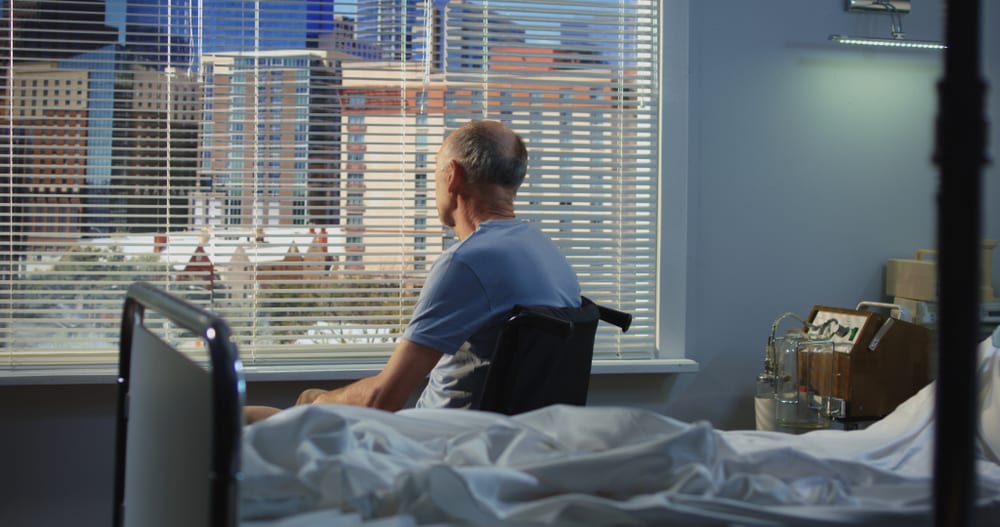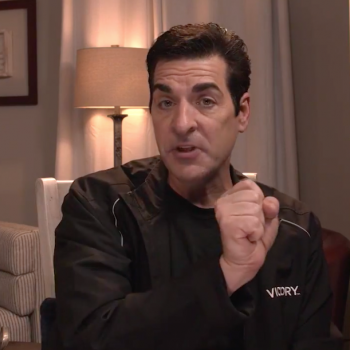A terminally ill Nova Scotia man has been cleared for medical assistance in dying (MAiD) by an assessment team, but he can’t die just yet. His wife won’t let him go.

She has taken the case all the way to Nova Scotia’s Supreme Court in search of an injunction, saying her husband is not mentally competent to decide for himself if he would like to continue living. It is the first time since MAiD was legalized in 2016 that a family member has sought an injunction to stop the medically-assisted death of a subject who’s been found competent to choose.
The media is referring to the petitioner only as Katherine, and neither the media nor the courts will name her husband at all. They have a good reason, too: Katherine has threatened to sue any doctor who carries out his expressed wishes. If doctors figure out his identity, they may deem it too risky to treat him; he could lose access to medical care altogether.
The conflict has shattered their marriage of almost five decades, and Katherine’s husband is no longer living in their shared home.
Katherine’s unnamed husband — court documents refer to him as X — has an advanced case of COPD (chronic obstructive pulmonary disease). Doctors’ guesses about how much time he has left vary widely, but he cannot be cured, and his condition impacts his comfort and quality of life. Beginning in April, a team of medical professionals (including four physicians, one of whom is a psychiatrist) assessed him and determined that he was ill enough to qualify for MAiD, and mentally healthy enough to make the decision for himself.
But an unlicensed doctor Katherine knows as “the son of a church friend” told her he believes X is a hypochondriac with severe anxiety. Katherine submitted this opinion in an affidavit, but Supreme Court Justice Peter Rosinski says he gave it “minimal weight” next to the opinions of the doctors who examined and diagnosed X in a professional capacity.
It’s not clear how well the unlicensed doctor knows X; the couple have never been fellow believers. That’s never been a problem before now. But in an interview with the CBC, X said he believes his wife’s religion is what has led her to interfere with his plans for his own death:
I do very much lament the path she and her church friends have chosen. They are very proud of themselves [for] doing God’s work and are trying to bring me to God and all of that. Well, for me this has no meaning. It seems absurd. It seems unkind, actually, and very self-seeking.
Katherine has become involved with an Ontario-based organization called the Euthanasia Prevention Coalition (EPC), which has been paying her legal fees and referencing her case to solicit more donations. The organization’s website sneers at the possibility that MAiD can be a compassionate option and asserts:
Euthanasia and assisted suicide should be treated as murder/homicide, irrespective of whether the person killed has consented to be killed.
The organization is advocating a permanent injunction that would make MAiD inaccessible to X for the rest of his life. Katherine agrees with them on the grounds that “it’s normal to die when you’re supposed to die.”
In the initial case, Rosinski decided the threshold of evidence for ordering an injunction hasn’t been met. The harm the wife could incur by her husband’s medically-assisted death is not a weightier matter than the harm her husband would incur if unjustly stripped of his medical autonomy.
But Katherine and the EPC have petitioned the Nova Scotia Court of Appeals to set aside Rosinski’s decision. Justice Elizabeth Van den Eynden has heard their case and set an appeals hearing for the end of September, some months after X had hoped to already have shuffled off this mortal coil.
X says he feels demeaned by his wife’s insistence that he is “delusional” based on little more than her distaste for his choices. He says he doesn’t want to end his life violently; he would prefer a peaceful death with medical assistance. But with his wife interfering with his access to care, he says he’s been considering whether he has any other option.
Ironically, in maintaining that X has no moral right to control the circumstances of his death, Katherine has set herself up as the controlling one, agitating to deprive him of options beyond the “natural death” she thinks he’s morally obligated to await.
(Image via Shutterstock. Thanks to Krakus for the link)




It’s Moving Day for the Friendly ..."
It’s Moving Day for the Friendly ..."
It’s Moving Day for the Friendly ..."
It’s Moving Day for the Friendly ..."